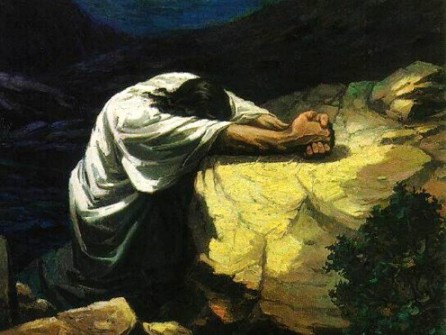Lent has always been a bit of a tough one for me. I'm not really the sit around kind of person. I don't naturally take the time to think deeply about things. I'm more a doer, and I realise that has limited my ability to truly understand what God has done for me in Jesus.
So, my practice over Lent is to spend some time in quiet prayer and meditation, taking the time to reflect on Jesus's life, and his death. I figure if the events surrounding Jesus's death was so important to the evangelists (Matthew, Mark, Luke, and John) that they spend a significant portion of the books they write on it, then maybe I should pay a bit more attention as well.
The one thing that often strikes me is the way in which Jesus approaches his death. Many of our cultural stories of a good death are ones of "strong" people who face their death without fear or complaint. We see that a bit in Jesus's story. He doesn't argue with Pilate about the injustice of the trial. He doesn't beg for his life from the people who seem to be in authority.
But he DOES pour out his heart to the one who really is in control. The scene in the garden of Gethsemane does portray a detached emotionless Jesus steeling himself for his coming death. It portrays a man full of grief and anguish at the prospect of what was coming. Frederick Leahy puts it this way in his book The Cross He Bore: Meditations on the Sufferings of the Redeemer:
"It has been common to contrast the calm and serene death of Socrates, condemned to drink the poisoned cup, with the agony of Christ at the prospect of death. Socrates faced death fearlessly and stoically because he had mastered the art of suppressing emotions his emotions, but in this, as Klaas Shilder reminds us, he lived only a half-life and died only a half-death. Christ, on the contrary, suppressed nothing either in life or in death, and in the cold shadows of Gethsemane he gave full vent to his feelings, full rein to his emotions. Indeed, he brought men to witness (however briefly) his agony and, by his Spirit, had a detailed account of his sufferings recorded."
Jesus did not want to die. He did not want to do what he knew needed to be done. He agonised over his own death.
Even though he was willing to do it, because he knew it was necessary. He did not do it easily.
That scene in the garden often helps me get a better glimpse of what it cost for Jesus to give himself up for us...
for me...
for you.
